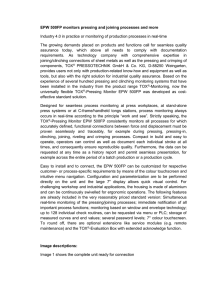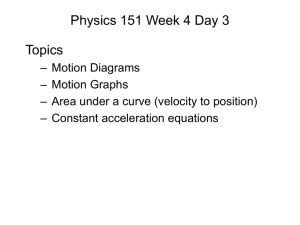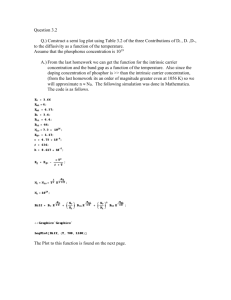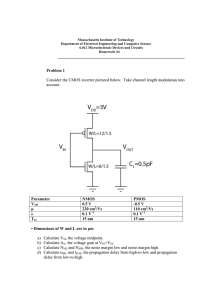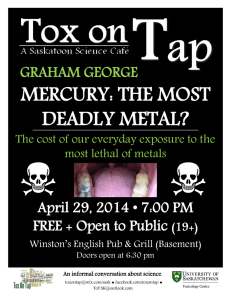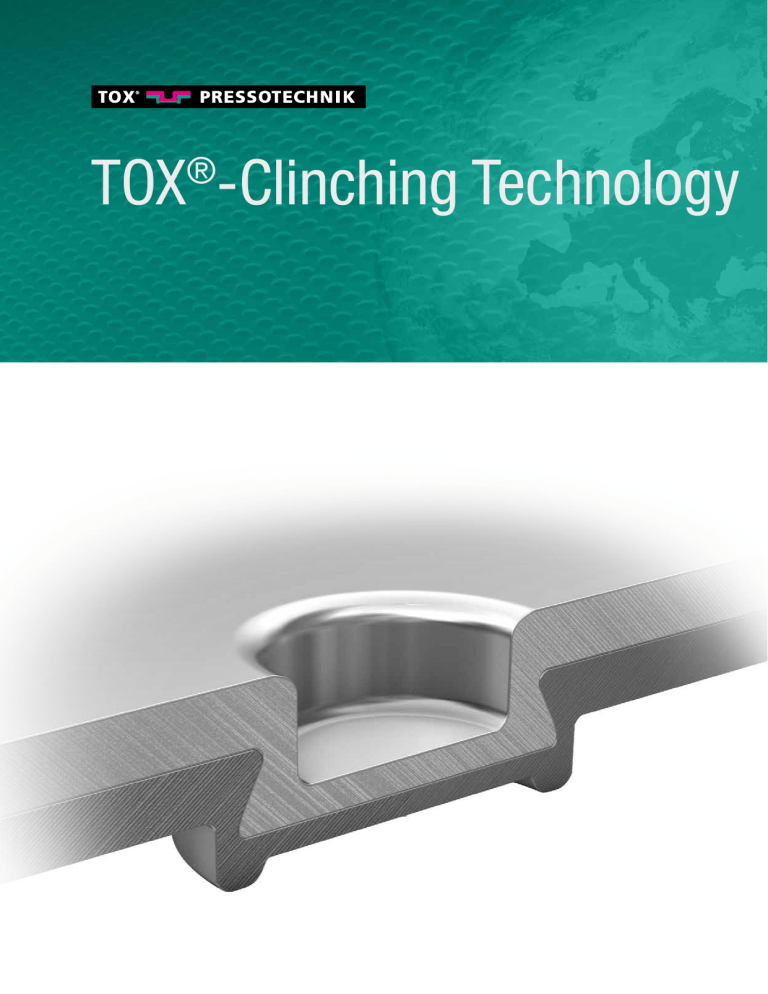
........................................................................................................................................................ TOX -Clinching Technology ® 1 TOX®-Clinching Technology ........................................................................................................................................................ The TOX®-Clinch Joint: a buttonlike connection, to join sheet metal together. 2 tox-pressotechnik.com ........................................................................................................................................................ The highly efficient joining process Assembly automation, multi-material stack ups, fastening costs and energy savings – the challenges for sheet metal forming are multifaceted. Automotive and appliance manufacturers as well as general metal processors must rely on innovative joining procedures to assemble modern products using new materials and manufacturing processes from a technical and economical point of view. Why does a TOX®-Joint hold? In the TOX®-Clinching process a punch displaces material into a die. Through plastic deformation and reverse flow of the material the joint forms an undercut to generate the holding force. Residual bottom thickness = Control dimension X Neck area The cold joining process TOX®-Clinching is a highly effective solution for this purpose. During clinching or press joining, the sheet metals to be joined are connected force- and positive-locking with each other in a continuous forming process. A wide range of materials can be joined with this press-forming process, all without damaging the surface. In hybrid joining, clinch points locate and relieve the adhesive bond during and after hardening – the specific properties of both techniques complement each other optimally. This means that the combination of both joining technologies results in innovative joining options. Ring channel Undercut Creation of a TOX®-Clinching Joint Penetration Compression Emergence of contour Lateral spreading Finished TOX®-Joint 3 Advantages of the TOX®-Clinching Technology ........................................................................................................................................................ Versatile and full of options Flexibility With the clinching process, sheet metals of different qualities, surfaces and thicknesses can also be joined with adhesive or other intermediate layers. The TOX®-Clinching Technology offers numerous technical advantages: Different materials The TOX®-Clinching Technology can be used for numerous material combinations. Whether it is steel, aluminum, copper, brass or stainless steel – all materials can also be joined in combination. Continuous development and experience with a large number of applications have resulted in long tool life. Excellent Electrical conductivity The clinching process provides the best electrical conductivity compared to other mechanical joining processes. This makes clinching ideally suited to electrical assemblies and devices. Point sizes: Diameter 2 – 26 mm Advantages: Joining of similar or dissimilar materials Joining without heat: no distortion of the workpiece Ideal for hybrid connections or auxilary parts No additional materials required Automatic and precise monitoring and documentation of the process Strong connections No contamination of the workpiece No damage to the coating or surface Sheet metal thicknesses 0.1 mm 0.1 mm up to 12 mm 12 mm Common sizes Clinching is possible with different materials 4 with different surface finishes tox-pressotechnik.com with different thickness with multiple layers ........................................................................................................................................................ Lighting assembly Washing machine housing Automotive part Airbag crashbox Washing machine drum Electric motor housing Heating elements Back-up fuse box Automotive seat component 5 Technical Advantages ........................................................................................................................................................ Strong and durable Corrosion-free joining technology The corrosion test proves: Because the surface coating is not damaged during the round joint process the anti-corrosive properties of the joined sheet metals (e. g. galvanization) are maintained. The surface is not damaged by any cutting process – the coating flows with the material and remains intact. Consistent dynamic strength In comparison to spot welding, the clinching process does not have the negative properties of the notch effect. This allows the joint strength to remain constant over various load cycles. TOX®-Clinching Joint Corrosion test Holding strength with different materials and conditions 1.000-h salt spray test 1.000-h alternating climate without aging 9 kN 8 kN 7 kN Shear force Fs High static strength Clinch connections achieve high static retaining forces of up to 70 % of a weld point. They also have a positive strain hardening, maintain the surface coating and are generally also more economical. Additionally mixed-material joining can be realized. 6 kN 5 kN 4 kN 3 kN 2 kN 1 kN 0 kN Flat steel DC04 single sheet thickness 0.8 mm, steam degreased Flat steel DC04 single sheet thickness 0.8 mm, adhesive film Flat steel DC04 single sheet thickness 0.8 mm, flanged seam adhesive paste Dynamic strength Strength of clinch, punch rivet and spot welding connections under oscillating shear strength load (endurance fatigue test). 10000 Number of load cycles 100000 Aluminum EN AW-5182 steam degreased F F 1000000 Force amplitude Fa 100 kN Material: Flat steel ZStE 420 Single sheet thickness 1 mm Joining technologies: 10 kN linching TOX®-Round-Joint C dM = 8 mm R iveting with semi-tubular rivets 5.3 x 5.0 mm S pot welding dL = 5 mm 1 kN FD Fatigue strength: 12 kN 13 kN 6 kN 6 tox-pressotechnik.com Source: FOSTA P283 Economical Advantages ........................................................................................................................................................ Cost saving and emission-free Excellent cost savings Directly compared to spot welding, TOX®-Clinching is approximately 40 % cheaper with regard to investment, operating and tool costs. This is ensured by the following technical advantages: Comparison of costs per joint 100 % Reduced investment due to long service life of the TOX®-Tools Low ongoing operating costs, as no procurement of additional materials or elements Rational production due to the high degree of automation Energy savings, as no heat needs to be generated No post-processing required Continuous quality control provides verifiable quality 75 % 50 % 25 % 0 Cost savings compound with multi-point applications. Spot welding Investment costs Operating costs Tool costs Emission-free and energy-efficient As clinching is a cold forming process, there are positive environmental aspects including: TOX®-Joining No poisonous vapors or gases No harmful effects for the operating personnel Low noise despite short cycle times No consumption of coolants, oils or gases No disposal of chemicals or waste Expected Number of joints until tool change (Punch and Die) The actual tool life will be determined after joining-tests of the particular application. Stainless Steel 1.4016 Steel Alumnium and Al-alloys Copper and Cu-alloys Total sheet thickness > 3,00 mm Total sheet thickness ≤ 3,00 mm Total sheet thickness ≤ 2,00 mm Tensile strength 500 - 1000 MPa Tensile strength 200 - 500 MPa with silicon, extruded profiles general plain tinned 0 100.000 200.000 300.000 400.000 500.000 900.000 1.000.000 7 Process Competence ........................................................................................................................................................ The perfect joint for every application TOX® PRESSOTECHNIK provides you with the best technological solutions and complete systems from one source, the respective design will be tailored to your specific joining tasks. An important step here is the selection of the clinch point shape: TOX®-Round-Joint The classic: A round punch presses the materials to be joined into the die. The result is an aesthetically pleasing round button, which joins clearly without any burrs or sharp edges the sheet metals. The protective layer, e. g. paint, flows and does not get damaged. TOX®-SKB The special die consists of solid and movable segments. The solid segments center the material and the punch. The movable elements allow flow of the material in the joint – especially with sheet metal of different thickness or when using adhesives between the sheet layers. TOX®-MICROpoint The miniature TOX®-Round-Joint is our answer to component miniaturization. With a diameter of 2 mm, it is ideal for sheet metal thicknesses of 0.1 – 0.5 mm and for slim flanges. For this reason, it is also optimally suited as an eClinch-Point. 8 tox-pressotechnik.com ........................................................................................................................................................ TOX®-TWINpoint This double cavity die provides protection against rotation and increases the joint strength compared to the single joint. It is ideal for small flanges and limited installation space. When eClinching, it also makes sure the design requirements are met. TOX®-Flat-Joint If the protrusion on die side presents a problem: with the TOX®-Flat Joint, the protrusion of the clinching joint on die side is pressed flat again in a second round using a flat die. A minimum protrusion height of only a few tenths of a millimeter remains. TOX®-Vario-Joint The TOX®-Joint for difficult combinations: Joining of sheet metal with large differences in thickness, joining of high strength or non ductile materials with ductile materials or joining of non metallic materials. The sheet metal is driven through the pre-punched material for this purpose. The process requires low joining forces and can also be applied in multi-point tools. 9 Process Competence ........................................................................................................................................................ TOX®- e Clinching Very low contact resistance makes TOX®-eClinching ideally suited for electrical components and is an efficient alternative to solder, welded and screwed connections. Long-term stable energy transfer The secret of the good conductivity of the TOX®-eClinching-Point is the joint zone. During the clinching process, in addition to the positive locking and force locking, there is a also an adhesive bond: The joined sheets flow together, resulting in an excellent conductive structure. Know-how for maximum conductivity For maximum conductivity some design rules must be taken into account for eClinching. If a piece part will be mechanically stressed, the TOX®-eTWINpoint is our recommendation, because it can withstand torque. The TOX®-eMICROpoint is suitable for joining small components, because it delivers good adhesive bond on a small diameter. Areas with the highest adhesive bond very high (neck area) high (bottom) good Material mix TOX®-eClinching joins aluminum with copper, a common combination in battery modules, without creating an isolating intermetallic phase. Soft coatings, like for example tin coatings on copper, are also formed without damage. eClinching is also perfect for joining heat-sensitive battery cells. The process nearly doubles the effective contact surface, which increases the conductivity of the TOX®-Point significantly. Advantages Force locking, positive locking and adhesive bond in on step Very robust connections No pretreatment required Joining process without heat Very low contact resistance Extensive documentation of relevant data 10 tox-pressotechnik.com ........................................................................................................................................................ Proven process quality Continuous quality monitoring A significant advantage of the TOX®-Round Joint is the simple quality control even in series production. By continuously measuring the residual bottom thickness (the control dimension “X”), each joint can be checked. An additional analysis can be carried out using cross sections (cut through the point). The shear and pull strength can be determined via tensile tests. Preliminary tests in the TOX®-Technical Center Prior to collaboration, we will work on the most effective solution for you in our labor. Here we will perform preliminary joining tests on your samples, which we test and analyze afterwards. We will also determine all parameters for your application, e. g. the required press force and suitable tools, and we will establish which system can be used for your joining application. Final check of the machine parameters Before we deliver a system, we check the real process results. We will create a cross section and analyze the joining process and the retention forces of the joint. Everything will be documented in a detailed test report. The initial set-up of the system is based on these determined values and parameters. Advantages Demonstrable joining quality in pre-tests and during series production Measurement and documentation of the shear and tensile strengths Documentation of the joining quality Production of pre-production parts 8 mm With a cross section of the clinching joint, the exact formation can be examined under the microscope for analysis. If necessary, optimizations can be made. 11 System Competence ........................................................................................................................................................ Equipment for TOX®-Clinching TOX® PRESSOTECHNIK with its decades of experience provides you with competent know-how for clinching systems. To achieve the best results for joining, systems are composed of proven components. Customer-specific requirements are fulfilled down to the last detail. All system components are matched to each other thanks to the modular principle. 1 Tools 1 Durable tools are necessary: punches and dies that are precisely adapted to materials, thickness and joining force. Frame 2 The high forces occurring during inserting are absorbed by a low deflection frame. TOX®-Drives 3 The forces required for clinching are created by electromechanical servo drives or pneumohydraulic Powerpackages. Control and process monitoring Ranging from external impulse to complete PLC controls built to the highest safetey standards Software to control all processes Monitoring of process curves Safety devices Safety door, light curtain, safety controls etc. Sensors Sensors for automatic control of the process and sequence parameters: Pressure, force-position measurement and position sensors. Accessories We provide numerous accessories for example the spraying systems for lubricating the tools and materials or the ToolCheck, which constantly checks that the die is not damaged. We also have strippers, compensating slides and many more options. 12 tox-pressotechnik.com 2 ........................................................................................................................................................ System designs Different basic designs are possible for clinching systems. Systems can be designed as tong − stationary or mobile − or as a press. 3 Crucial factors for choosing one system over another include the potential integration into production lines, optimum feed-in, the desired working speed and the size of the components. Robot tong The tongs are controlled by a robot. It moves precisely to the positions at the sheet metal parts to be joined. Design as a robot tong Machine tong For integration in machines and devices. Ideally driven via a central TOX®-Powerpackage X-KT system. Hand-held tong Flexible and easy to handle: Hand-held tongs are ideal for small series production. Machine Machines can be constructed as fully automatic, semiautomatic or purely manual workstations. TOX® PRESSOTECHNIK is certified to build safety rated work stations. Designs Machine tong Hand-held tong Machine 13 Components ........................................................................................................................................................ TOX®-Clinching Tools In the clinching process, the tool set plays the most important role. The suitable tool set is determined in the TOX®-Technical Center for each clinching process, guaranteeing the required retention forces. A tool set always consists of a punch and a die. All tools are produced from highest quality materials on precision machining centers – with suitable special coatings depending on the individual application. Every tool set comes with its own tool passport with individual information for your production and maintenance department. Our objective is to ensure reliable, safe and long-lasting production for you. TOX®-ToolCheck TOX -Spraying System The optional accessory TOX®ToolCheck can check the condition of the die during the process, which ensures that joining always occurs with an intact die. Defects are detected immediately. The workpiece surface and / or tools can be sprayed with a special liquid before the joining process. Then the joining and stripping forces of the tools are reduced and the forming of the material is made easier. 14 tox-pressotechnik.com ® ........................................................................................................................................................ Flexible control-software for the integrated production Flexible Multi-Technology Control One system - many possibilities! Our multi-technology control operates and monitors all functions. It is driveindependent and can be used for any technology. When a robot changes its tong, the system recognizes the parameters and can continue working immediately. This yields the highest degree of flexibility. TOX®-Multi-Technology-Control TOX®-Clinching Riveting Insertion of functional elements Additionally, the intuitive TOX®-HMI software allows easy installation and operation of the system. It is clearly structured and internationally understandable. Integrated Production Using numerous interfaces it is easy to connect the TOX®-Equipment to a company network. The system components communicate with each other via fieldbus. The data collected there enables continuous monitoring and improvement of the processes. Feedback from the production process can be used to optimize the technology parameters (e. g. residual bottom thickness). Unnecessary maintenance work and downtime can be avoided thanks to predictive maintenance. Advantages One control for different application technologies Import of process parameters from customer network Auto-configuration of system components Condition Monitoring: Storage of operating hours, maintenance counter, tool information etc. Preventive Maintenance avoids downtime Dynamic process monitoring Numerous interfaces for connecting periphery units (e. g. measurement sensors, feeding systems etc.) Network communication via OPC UA / MQTT TOX -HMI ® Control and Process unit Customer Network 15 Components ........................................................................................................................................................ Process monitoring devices Clinch monitoring was specifically developed for the TOX®-Clinching Technology. The monitoring systems CEP 400 and CEP 400 T allow the complete monitoring and documentation of the essential quality parameters of the process. Force sensors measure the press force during the joining process and a travel measuring system monitors compliance with the control dimension “X”. C-Frames and column presses The forces that occur during clinching processes are absorbed by C-Frames or the columns of a column press. The designs takes into account interfering contours, total weight, piece part accessibility, working conditions and occupational safety. Tong frame Press frame C-Frames Torsion-resistant frames are used for tongs and presses. We respond to the specific requirements with standard frames or individual designs. Column presses Column presses are particularly useful for multi-point clinching tools. They can be manufactured in various sizes, but all have the same precision and good handling. 16 tox-pressotechnik.com Column press ........................................................................................................................................................ TOX®-Drives High forces are needed for clinching to press the punch into the material. These forces are generated by electromechanical servo drives or pneumohydraulic Powerpackages. TOX®-Powerpackage The strong pneumohydraulic drive, which is already used in thousands of machines all over the world. It is available with press forces 2 – 2000 kN. TOX®-ElectricDrive Modular electromechanical servo drive systems with press forces up to 1000 kN. Additional components Information about additional components like controls, piece part holders, safety devices and accessories can be found on our website tox-pressotechnik.com. 17 Individual Solutions for our Customers ........................................................................................................................................................ TOX® PRESSOTECHNIK designs process flows more economically – with special systems, intelligent assembly systems and fully automatic feeds with integrated additional functions. We possess long-standing experience and comprehensive know-how in the development and design of these systems. We look to create highly efficient systems to match our customer’s designated work flow. We are committed to finding the best solution for optimizing the manufacturing processes according to our customer’s requirements. For this reason, our machines are the product of close cooperation between our customers and our project managers. Our service team will also be on hand quickly and reliably at all times following delivery. Identify demand An extensive consultation forms the basis of each concept for us – for special machines as well as production systems. We use our experience and high level of expertise to identify the basic needs, determine the required components, and sketch out an initial layout. In our lab we can produce samples with original materials, components and elements in parallel. Development process The specific system concept is forwarded to our design department, which creates the machine layout and generates detailed drawings for production. We produce or procure the mechanical components according to the design and assemble the system. There after the electrical components are installed and the controller is configured. Commissioning Once complete, a trial run of the system is performed. Once everything meets customer expectations, the customer approves the system. Following delivery, set-up and installation of the system, commissioning is performed by our qualified personnel. After-sales service We train the operating personnel extensively – either at our premises or on site using the delivered system. Often, we also support initial production and provide advice and assistance. When everything is running smoothly, we are happy to perform regular maintenance tasks on request. 18 tox-pressotechnik.com ........................................................................................................................................................ 19 Application examples ........................................................................................................................................................ TOX®-Robot tongs for joining body parts in the automotive industry. TOX®-Press joins housings for electric motors. TOX®-Hand-held tong for manual clinching. 20 tox-pressotechnik.com ........................................................................................................................................................ Multi-point tool with 120 punches and dies, which is used for joining sheet metal in an automated production. TOX®-Press joins heating elements for cars. TOX®-Press joins lighting parts. 21 Application examples ........................................................................................................................................................ Special tong with 2 multipoint tools. TOX®-Press for eClinching of fuse parts. TOX®-Press joins seat rails for cars. 22 tox-pressotechnik.com ........................................................................................................................................................ TOX®-Press for clinching fuses to bus bars. TOX®-Press for appliances. It clinches refrigerator housing parts. TOX®-FinePress for joining electric parts with a TOX®-MICROpoint of 2 mm diameter. 23 ........................................................................................................................................................ TOX® PRESSOTECHNIK GmbH & Co. KG Riedstrasse 4 88250 Weingarten / Germany Find your local contact at: tox-pressotechnik.com 317874 / 80.202111.us Subject to technical modifications. 24 tox-pressotechnik.com TOX® PRESSOTECHNIK L.L.C. 4250 Weaver Parkway Warrenville, IL 60555 (USA)
